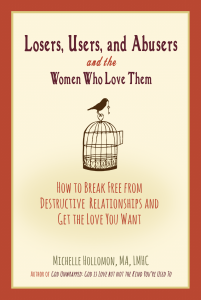
Do you ever find yourself feeling alone even when you’re surrounded by people? Do you feel like you’re doing life by yourself, even though you’re married? Even couples who have been together a long time, might still complain that they just don’t feel that close. The missing ingredient is INTIMACY. If you are single or married, understanding what INTIMACY is and why everyone needs it, will help you with all of your relationships.
Even though Sexual Intimacy gets a lot of air time, there are actually several different types of intimacy that contribute to relationship happiness. Today, in Part 2, we will talk about the different types of intimacy and what you can do TODAY to improve your intimacy with yourself, with God and the important people in your life.
Intimacy is Risky Business
Many people are initially afraid of getting close to people because of fear of judgment or rejection. People use various tactics to keep people at a distance, like being “too busy” or being “too different” but these are excuses to avoid the scary risk of getting close. Here are some different types of intimacy with their inherent level of risk.

Types of Intimacy
Intellectual Intimacy is feeling bonded over intellectual ideas, work or creativity. It occurs when people work closely together on a project researching ideas, solutions and presentations. You may share intellectual intimacy with your partner, co-workers, co-creators, research team, or political party group. LOW RISK
Recreation Intimacy is experienced by those who engage in physical and mutually enjoyed activities. People who hike, knit, ski, or play tennis together connect with one another through interests and physical activities. LOW RISK
Spiritual Intimacy is best explained by the sharing of same or similar faith or belief system. In Christianity, scripture describes spiritual intimacy a binding together of all believers through the Holy Spirit’s truth, power, and unifying force of love. Activities like prayer, bible reading, meditation, acts of service enhance the shared belief system and bring an assurance of mutual acceptance. MEDIUM RISK
Sexual Intimacy is fully experienced between married couples in the presence of safety, trust, love and commitment. It involves the physical act and responses of sexual partners leading to feelings of love, warmth, closeness and attachment. HIGH RISK
Emotional Intimacy is the bonding through shared feelings. You may feel emotionally connected to any person that shares fears, hopes, weaknesses or jubilation. Emotional Intimacy is also experienced when you feel heard, validated or comforted through pain. HIGH RISK
You and Intimacy
You may find that you share different types of intimacy with different types of people. You may connect closely with a person at work over intellectual concepts, but share no recreation intimacy at all. Close friends overlap on many intimacy levels. Couples who report being happy and loving will usually share all the Intimacy Types at some capacity. They find each other intellectually stimulating, spiritually aligned, with compatible interests and activities and sexually attracted and active.
In my work with couples, I’ve found that Emotional Intimacy is the hardest to achieve in marriages because each partner is often responsible for causing emotional pain to the other. If emotional intimacy is off, then sexual intimacy is often negatively affected as well. For the last 4 years, I’ve been working on a book that peels away the obstacles couples face that inhibit healthy emotional intimacy.
Recently, I’ve blogged a lot about the physical and psychological abuse that is present within couples relationship, and how to get help to stop this destructive pattern. I call these the USER and ABSUER relationships. Couples in destructive relationships often have a high level of emotional reactions and intensity, but lack true emotional intimacy.

For the next few weeks, I will be focusing more on what I call LOSER relationships. No, I’m not talking about the “couch potato” husband or the “Soap Opera and bon bons” wife. I’m talking about the couples that LOSE OUT on true intimacy with one another. The three big obstacles to Emotional Intimacy are Fear Issues, Control Issues, and Trust Issues. We will walk through all three of this in the coming weeks in order to help you improve your intimacy in your relationships. Check out this resource if you want to go more in depth. This book will take you step by step into getting the love you want, and avoiding the rest.

Click here for more information on how to have healthy relationships.






